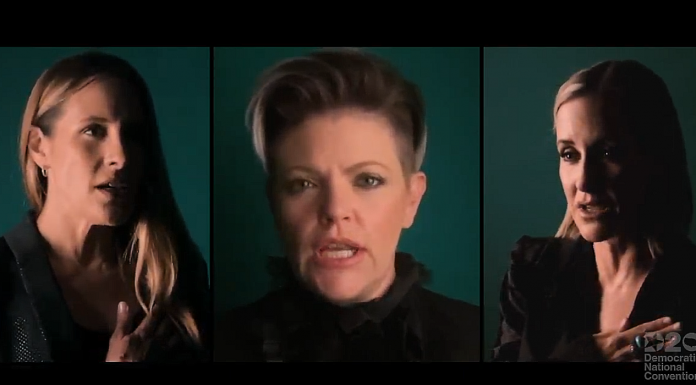In many ways the former Dixie Chicks were ahead of their time.
They grew from niche country trio to artists of national significance on the Left by bashing Republican presidents before bashing Republican presidents was the entire platform.
Indeed, the rehabbing of George W. Bush as a moderate has made lead singer Natalie Maines’s vitriol seem a bit disproportionate.
But the artists, who recently dropped the “Dixie” from their name, proved yet again that they still harbor some of their racist bigotry of yore.
They opened the final night of the Democratic National Convention singing what many regard to be a racist ode, the “Star Spangled Banner,” also known as the national anthem.
Due to the nature of the virtual convention, it was unclear how many in the audience were kneeling as the chicks—now middle-aged women—serenaded viewers at the DNC, which has roughly half the turnout of its 2016 convention.
The group only sang the first verse, but it ignored the controversial lines of the four-verse anthem’s latter lyrics, including the controversial line in the third verse: No refuge could save the hireling and slave / From the terror of flight or the gloom of the grave.
Contrary to the multicultural, intersectional message of the convention, the song also promotes Christian propaganda with lines like “In God We Trust.”
The anthem’s author, Francis Scott Key, was also a slaveholder and, while critical of the cruelties of slavery, maintained a neutrality on its abolition and advocated a movement to recolonize slaves in Africa.
The Dixie Chicks were among other longtime franchises with mildly offensive brand names that decided only after the killing of George Floyd to make a change.
Similarly, Lady Antebellum, another unremarkable pop-country group, sought to take the lead in woke virtue-signaling by truncating its name to “Lady A” but was forced to sue an African–American blues artist who also used the name.

